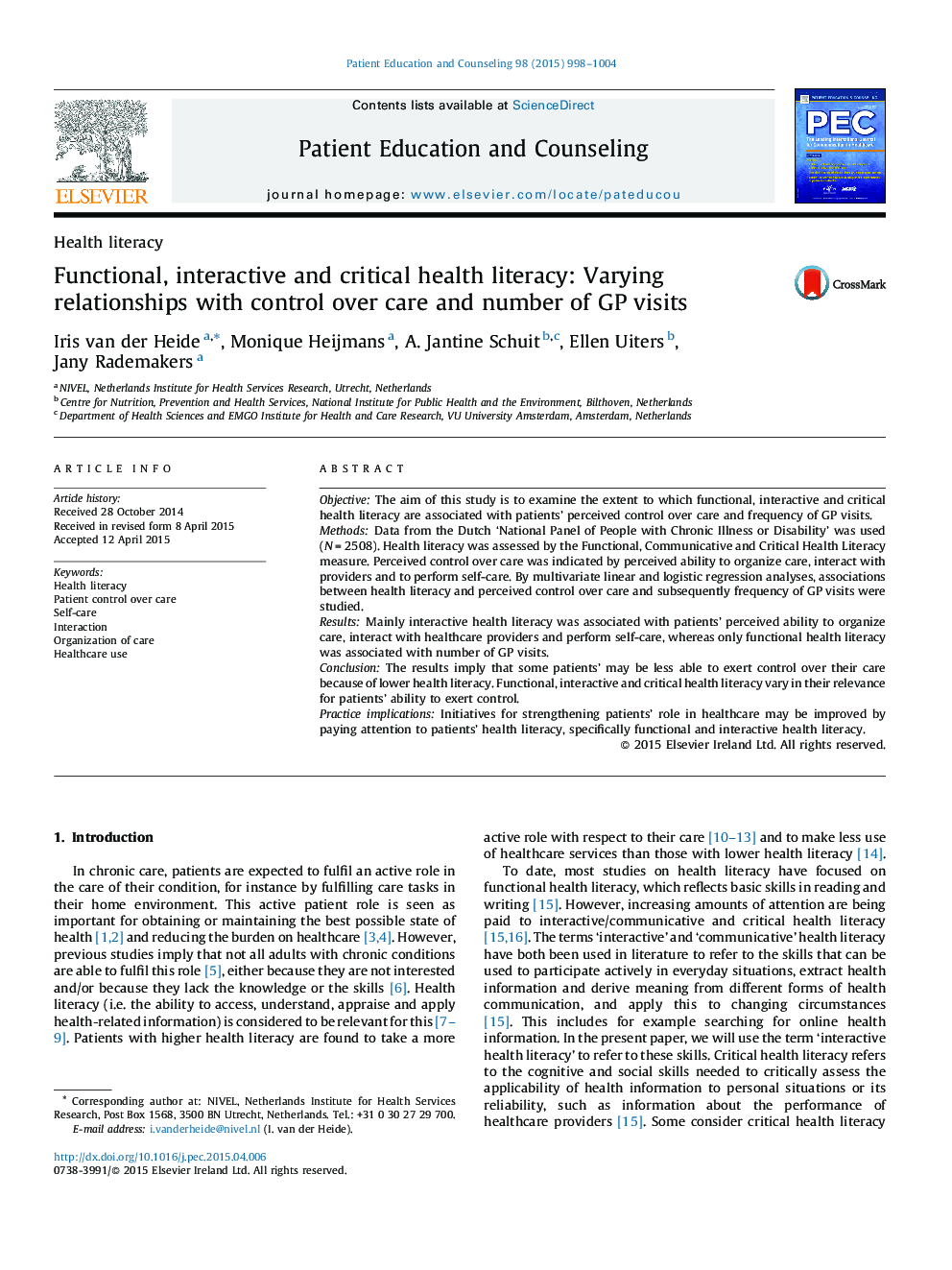| Article ID | Journal | Published Year | Pages | File Type |
|---|---|---|---|---|
| 6152972 | Patient Education and Counseling | 2015 | 7 Pages |
â¢Especially interactive health literacy is relevant for patients' control over care.â¢Lower functional health literacy is associated with more GP visits.â¢Functional, interactive and critical health literacy seem complementary.â¢Addressing interactive health literacy seems beneficial for patient activation.
ObjectiveThe aim of this study is to examine the extent to which functional, interactive and critical health literacy are associated with patients' perceived control over care and frequency of GP visits.MethodsData from the Dutch 'National Panel of People with Chronic Illness or Disability' was used (NÂ =Â 2508). Health literacy was assessed by the Functional, Communicative and Critical Health Literacy measure. Perceived control over care was indicated by perceived ability to organize care, interact with providers and to perform self-care. By multivariate linear and logistic regression analyses, associations between health literacy and perceived control over care and subsequently frequency of GP visits were studied.ResultsMainly interactive health literacy was associated with patients' perceived ability to organize care, interact with healthcare providers and perform self-care, whereas only functional health literacy was associated with number of GP visits.ConclusionThe results imply that some patients' may be less able to exert control over their care because of lower health literacy. Functional, interactive and critical health literacy vary in their relevance for patients' ability to exert control.Practice implicationsInitiatives for strengthening patients' role in healthcare may be improved by paying attention to patients' health literacy, specifically functional and interactive health literacy.
